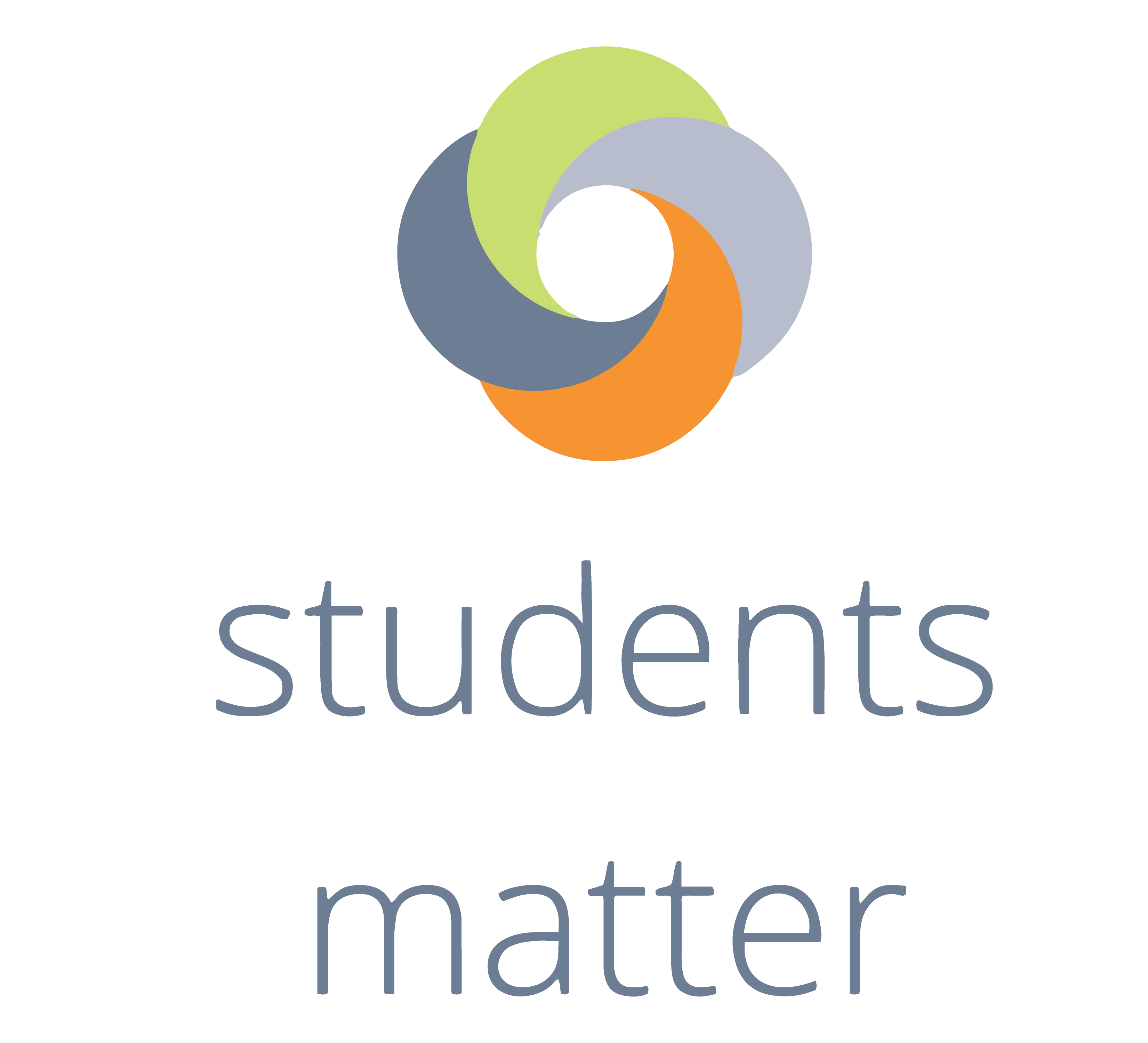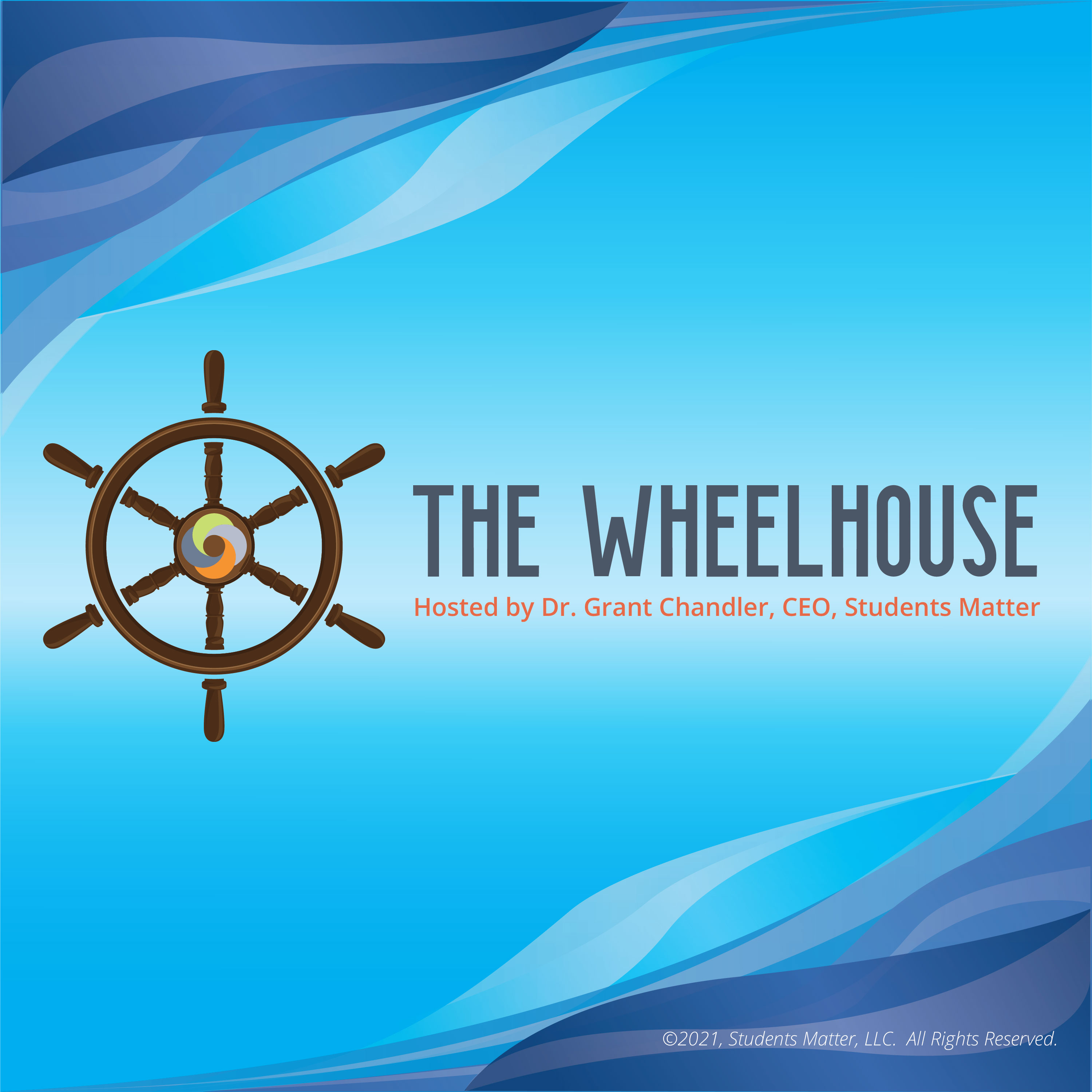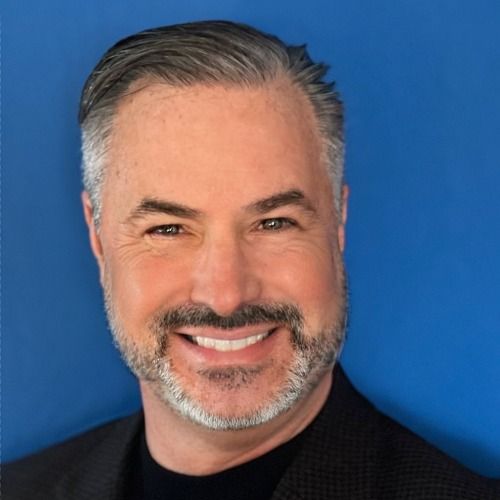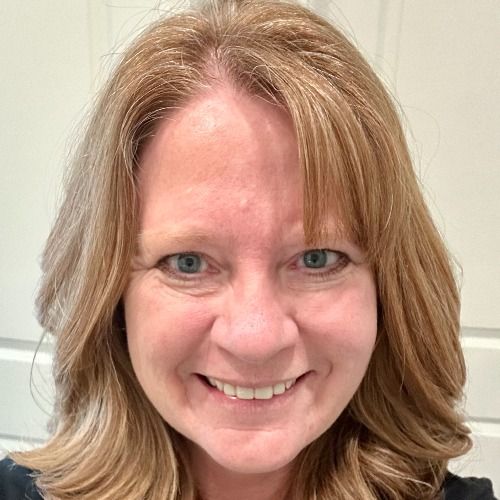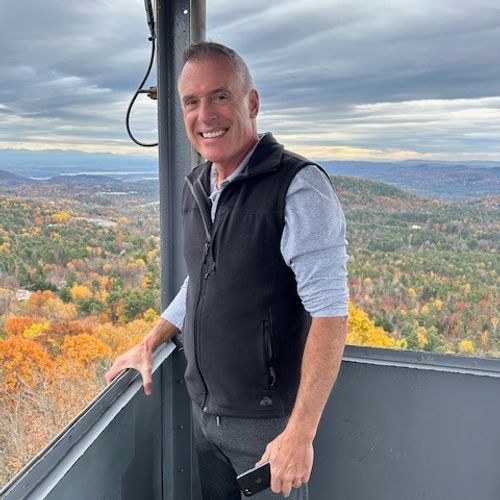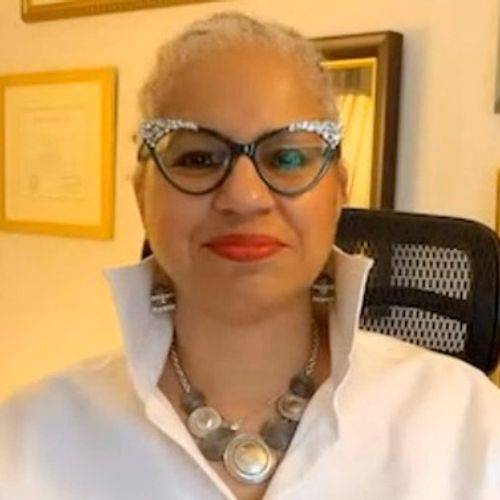Harnessing Joy: The Key to Human-Centered Learning
Joy serves as a pivotal force in the realm of education, transcending mere outcome to become the very engine that propels learning. In this episode of The Wheelhouse, we engage in a profound discourse on the significance of joy-filled learning for both students and educators. We examine how future-ready schools, characterized by innovation and rooted in humanity, can cultivate environments where joy is not only experienced but is foundational to the educational experience. The conversation emphasizes that true educational innovation must prioritize human connection, fostering a sense of belonging and purpose among learners. Ultimately, we assert that the future belongs to students who have encountered learning as a joyful journey, as joy fuels their courage, curiosity, and connection to the world around them.
Additional Notes
Joy, a multifaceted and profound concept, serves as a central theme in the discourse on future-ready educational environments. The discussion delves into the essence of joy, distinguishing it from mere happiness, and posits that while happiness is transient and often contingent upon external circumstances, joy emanates from a deeper sense of purpose and belonging. The Wheelhouse Team contemplates the implications of fostering joy within the educational framework—asserting that when joy is not merely an outcome but rather the driving force behind learning experiences, profound transformations can occur. This exploration challenges us to reconsider our pedagogical approaches, urging educators to create spaces where students can flourish emotionally and intellectually, ultimately fostering an environment that cultivates hope and innovation.
Takeaways:
- Joy serves as the foundational element that drives engagement and fosters a positive learning environment in educational settings.
- The radical humanization of schools is essential for cultivating hope, dignity, and opportunity for all students.
- Future-ready education must prioritize joy as a core metric over standardized achievements that neglect the human experience.
- Educators must embody joy themselves to inspire and create a joyful learning atmosphere for their students.
Join The Wheelhouse Company!
If you’re a like-minded educator who believes the future of learning must stay human-centered, we’d love for you to stay connected.
Follow Students Matter, LLC on Instagram or LinkedIn — or find any of us there: Kathy Mohney, Michael Pipa, Dr. Alicia Monroe, and me, Dr. Grant Chandler.
And we’re thrilled to invite you to step inside The Wheelhouse: Below Deck at Learn Harbor — our new online space where these conversations come to life.
It’s more than a platform — it’s a community.
A free, curated, safe harbor for educators, leaders, and thinkers who want to reflect, connect, and take action together.
Inside Below Deck, you’ll find our special segment: The Wheelhouse: All Hands on Deck, extended content from today’s episode —where purpose meets possibility and learning stays joyful, collaborative, and deeply human.
- Join us at LearnHarbor.thinkific.com and become part of this growing movement to build Future Ready Schools — where innovation is always rooted in humanity.
Until Next Time Remember: Keep your doors open and your hearts even wider.
Transcript
What is joy?
Speaker A:What does it mean for a student to experience joy filled learning?
Speaker A:What about a teacher?
Speaker A:Where does engagement fit into this picture?
Speaker A:And just exactly what role does joy play?
Speaker A:In future ready schools where innovation is rooted in humanity, a new episode of the Wheelhouse begins Right now.
Speaker A:The future of education depends on a radical humanization of schools.
Speaker A:Places where hope is cultivated, opportunities are opened, and innovation is harnessed to serve humanity.
Speaker A:Only then can we create futures worthy of each student's dreams.
Speaker A:We begin by cultivating hope.
Speaker A:We ensure possibilities are real and accessible.
Speaker A:We design futures rooted in humanity.
Speaker A:The future is already here and it must be deeply human centered.
Speaker A:The Wheelhouse exists to create an inclusive community of empowered educators who believe that together we can disrupt the transactional nature of schooling and reimagine what it means to learn, to lead and to belong.
Speaker A:We envision schools, districts and classrooms where every student feels confident, capable, optimistic, well supported and emboldened to be and to become who they're meant to be.
Speaker A:Each episode of the Wheelhouse explores the knowledge, practices and stories that bring this vision to life.
Speaker A:Our team, Kathy mone, Michael Pipa, Dr. Alicia Monroe and I, the Dr. Grant Chandler, alongside our guests, take on the fundamental challenge of realizing what we most want every student to experience in school.
Speaker A:Dignity, agency and belonging.
Speaker A:In season 11, we ask a simple but profound question.
Speaker A:Where are we going?
Speaker A:We strive toward future ready learning that keeps humanity at its core.
Speaker A:Under the theme future ready Innovation rooted in humanity, we affirm that future readiness is not defined by devices or data, but by our shared humanity.
Speaker A:True innovation doesn't replace human connection, it amplifies it.
Speaker A:A future ready school prepares students to thrive by honoring their identities, nurturing their creativity, and equipping them to engage with a changing world from a place of strength and purpose.
Speaker A:Last time we talked about how innovation must be rooted in humanity.
Speaker A:In today's episode, we're turning to one of the most human elements of all.
Speaker A:Joy.
Speaker A:What happens when joy isn't just an outcome of learning, but it's the engine that drives us?
Speaker A:You're listening to season 11, episode two of the Wheelhouse, and a powerful conversation on leading with humanity.
Speaker A:Let's dive in.
Speaker A:Good morning and welcome to the Wheelhouse.
Speaker A:This is season 11.
Speaker A:We're in episode two.
Speaker A:I am with amazing people, Kathy Mone, Michael Pipa and Dr. Alicia Monroe.
Speaker A:Good morning.
Speaker A:Good morning.
Speaker B:If everyone could just see the smiles just shining on every face.
Speaker B:We just love this time together.
Speaker A:We do.
Speaker A:I just gotta say, because I haven't talked to you since I edited the after show.
Speaker A:The wheelhouse.
Speaker A:All hands on deck.
Speaker A:Wow.
Speaker A:I just got to tell you folks who are listening, we get a little, as Michael said, we get a little salty when we let our hair down a little bit.
Speaker A:And it was a great conversation.
Speaker A:So certainly encourage you to follow up from episode one and join us in Below deck, the wheelhouse Below deck and take a listen to see the episode one of all hands on deck.
Speaker A:So many decks.
Speaker A:So many decks, Right?
Speaker A:And Below deck we're on.
Speaker A:We're all hands on.
Speaker A:There's just so much to talk about.
Speaker A:Right?
Speaker A:But what an incredible conversation.
Speaker A:I'm not even going to tell you what it was about, but it was an extension of last week's episode and it was just, it was just incredible.
Speaker A:So I want to say thank you to you guys for your vulnerability and the great things that you had to say and I can't wait to engage people in that conversation.
Speaker A:So welcome to episode two, which I'm super excited about as well.
Speaker A:You know, last week we talked about how it's our theme, right?
Speaker A:The theme this season is future ready innovation rooted in humanity.
Speaker A:And today we're going to talk about one of the most human elements of all, Joy.
Speaker A:What happens when joy isn't just an outcome of learning, but it's the engine that drives it.
Speaker A:Joy.
Speaker A:What an incredible word, that three letter word.
Speaker A:So before I just start grilling you with questions, just let's just sit there in that space for a moment.
Speaker A:Wouldn't it be incredible if our children and our educators came to school every day and experienced joy?
Speaker B:It would absolutely exude what the four of us feel when we get together.
Speaker B:So we talked about that during the, the pre show, if you will, as we are getting ready for this conversation and how much we look forward to this, how much we feel like we belong and we matter and we can be vulnerable and all of those pieces, we want to be here, we choose to be here.
Speaker B:The joy that exudes from us physically, emotionally, to me, that is what it looks like, it should look like and feel like for each and every student in a classroom.
Speaker C:So in response, Kathy, when I do my work on the difference between happiness and joy, what we experience in this space is an internal wellspring of purpose and passion that's very different from happiness, which is episodic and is linked to situations and circumstances that could be temporal in nature.
Speaker C:Joy is that internal sweet spot, that space that regardless of the chaos that's going on around us, we have peace.
Speaker C:So when we talk about future ready schools, we want all educators and Students to have joy.
Speaker A:You know, we define that in powerful student care as, what would a student say if they experienced the joy of learning?
Speaker A:Because joy, like Alicia said, it's not like, ha, ha, ha, that was so much fun.
Speaker A:It's about authenticity and purpose, right?
Speaker A:That a student would say, wow, I find purpose here.
Speaker A:What we're doing is not only connecting to my life now, but it's preparing me for my life in the future too.
Speaker A:And I can see that.
Speaker A:And because of that, I find purpose here.
Speaker D:I love the rooting of joy in the feeling of belonging and the sense of purpose.
Speaker D:And of all days, I find myself kind of struggling with trying to put my finger on joy and when and how and why it is I experience it.
Speaker D:And this morning, I felt the tension between joy and struggle.
Speaker D:And that oftentimes when I feel joy, it's because I've lived a stretch without it.
Speaker D:And there's been tremendous adversity, there's been tremendous struggles.
Speaker D:And it makes me dig deeper and do my inventory of appreciation and gratitude.
Speaker D:And then I start finding the green shoots of joy that have been living beneath so many things piercing the surface.
Speaker D:But I also know that it's because that sense of purpose keeps me hanging in there, keeps me pushing, keeps me in the adverse situation despite the struggle.
Speaker A:So, you know, we've been for 35 or 40 years, and, you know, last week, Alicia gave us the history of some of the movements that have been in education, right?
Speaker A:And we've been after.
Speaker A:We've been, you know, if you take all of them, you know, what do they have in common?
Speaker A:They've all been after standardized achievement.
Speaker A:They've all been after reading proficiency.
Speaker A:Right.
Speaker A:How many states have reading, you know, reading proficiency laws by grade three?
Speaker A:And we struggle with that.
Speaker A:And, you know, we aren't hitting it.
Speaker A:And then we're not, you know, we are struggling with our English language learners.
Speaker A:We're struggling with math proficiency.
Speaker A:So maybe we're focused on the wrong thing, which, of course, is what we've all been saying for a long time.
Speaker A:And so if we put this in the context of joy, wouldn't that be a more powerful measure of readiness?
Speaker C:So joy is inextricably linked to hope, dignity.
Speaker C:And I can go on and on because those are the guiding principles and the core values of the wheelhouse.
Speaker C:Absolutely right.
Speaker C:Powerful student care, whole child, accomplished, driven leaders.
Speaker C:I could go on and on and on.
Speaker C:So how do we provide joy, space, and hope opportunities?
Speaker C:Right?
Speaker C:Hope potential.
Speaker C:How about that?
Speaker C:Let's look at joy, space, and hope potential.
Speaker C:If all students don't belong.
Speaker C:And Michael, you talked about belonging, right?
Speaker C:If all students and every student doesn't matter, this is where we look at ourselves in the mirror, right back to season nine.
Speaker C:And we should be asking ourselves, are we cultivating hope or are we killing dreams?
Speaker A:And are we looking at a student as a universal identification code, right, A UIC number?
Speaker A:Or are we looking at them as a human being?
Speaker A:Whether or not we understand that human, whether or not we live like that human, whether or not we look like that human.
Speaker A:As we approach supporting each human being, we should be focusing on whether or not they're experiencing all of these things, right?
Speaker A:Hope, belonging, being valued, mattering, dignity, all of that.
Speaker A:And then when the way I organize instruction better, make sure they're experiencing joy.
Speaker A:And the only way I can do that is if I know them and.
Speaker C:Care about them, and if I have.
Speaker B:Empathy, which starts then with me as an educator.
Speaker B:Just like you were saying, Alicia, I mean, how.
Speaker B:How do.
Speaker B:How can students even begin to feel all of that if I'm walking in tainted and not believing that each student matters?
Speaker B:So I'm either that cultivating hope or killing dreams.
Speaker B:I'm either exuding joy or I'm exuding this level of.
Speaker B:Ultimately can feel like hatred because I don't matter.
Speaker B:Because if I come in with this core belief that certain groups of people, certain children, don't matter, then as a child, as a student, that's what I'm feeling.
Speaker B:That's what I'm learning from the adults that are entrusted with my care for more hours of the day than my family members, my parents, my guardians.
Speaker C:So, Kathy, as you say, that I'm a visual learner.
Speaker C:So I look at the hope meter, and the potential on the hope meter is moving from optimized hope to hopelessness.
Speaker A:And we wonder, right, as we talk about all of the things that, you know, negative.
Speaker A:The negative outcomes of what we're doing, chronic absenteeism.
Speaker A:And, you know, you go on and on and on.
Speaker A:Is it the lack of.
Speaker A:Part of it, of course, is the lack of belonging and the lack of being valued and mattering.
Speaker A:But part of it is, in many cases, children are bored out of their minds.
Speaker A:They are not experiencing joy.
Speaker A:They're experiencing whatever the antithesis is of that, right?
Speaker A:And I can think of some pretty ugly words that describe the antithesis.
Speaker A:But, you know, if this was a place, this was a place where your humanity was.
Speaker A:Was valued, where you were.
Speaker A:It was where you were celebrated every day just because of who you are as a human and where you were experiencing joy, a joy filled learning.
Speaker A:That's a place you wouldn't want to not be in.
Speaker C:I'm so glad you're going here.
Speaker C:I'm reflecting on the episode where Mel King described his experience in Michael's classroom.
Speaker C:And Michael, correct me if I'm wrong, because I'm going to pour joy into your cup this morning.
Speaker C:It's about him as he's moving through and navigating these intersections of identity, knowing that that love that fills that belief gap is exuded by my teacher, Michael Piper.
Speaker C:And then he begins to blossom as Micah continues to water.
Speaker C:Now, Micah could have taken a charge from his principal, or he could have said, I'm closing that door.
Speaker C:Am I correct, Michael?
Speaker C:But when Mel said that you could see him vividly walk through and recollect that experience as pivotal in his life, to really propel his life trajectory.
Speaker C:We want our students, years later, to be able to tell those stories and to recollect that type of narrative.
Speaker B:And that narrative beginning as soon as they walk through the doors, not until they get to high school.
Speaker B:Thankfully, Mel experienced that with Michael.
Speaker B:Thankfully, he found an adult, a teacher, a trusted person.
Speaker B:And maybe he felt others, maybe that, you know, it was just the one in particular that really shined this experience for him.
Speaker B:Every student, each student deserves that from the moment they walk through the doors to where it's not something that is uncommon, but it is the norm.
Speaker B:And then starting with the adults yet again.
Speaker B:And what does that support?
Speaker B:So when we talk about that classroom, we talk about this often with understanding those layers that are needed for the support for that sense of belonging that I matter that that joy is exuding from each and every adult at all layers of the organization.
Speaker B:Because then what?
Speaker B:Even when I think, Alicia, you said it.
Speaker B:Even when it's chaotic, even even when it's hard, even when these circumstances are coming at us, we're able to work through it and handle that because there is that core sense of joy and purpose.
Speaker D:A part of me is resisting the idea of joy as one more metric that teachers need to be measuring and tending.
Speaker D:And I want to preserve it as a practice because personally, in my journey as an educator, my career was begun in a field of learning, joy that was innovative and unbridled, unmeasured in so many ways and infinite.
Speaker D:And I watched and felt and experienced the impact of standardization over the first decade of my work as a teacher and the narrowing of what counts, what gets measured and what's important, and the driving from our midst of all of the things that gave us joy as learning people, regardless of age.
Speaker D:And it's when we get pushed to the absolute brink of meaninglessness and purposelessness that we dig in and we, we remember and we trust our understanding and our orientation and our instincts as learning people that without seeing those learners we're working with, without prioritizing the importance of their story and hope, there is no possibility for joy.
Speaker D:And without joy, there's no sense.
Speaker D:And so that's how I see the conversation about joy is a way to remind us that of course, when our third graders are exhausted and they've had just about enough of math today, let's pivot and let's sing together and let's get up and let's dance for no other reason than let's please do this.
Speaker D:And there's that vibe and that feeling in that moment, and skillful teachers seize on it, and then they incorporate all of that into the next phase of learning.
Speaker D:It's what we do as human beings.
Speaker D:And I think it's absolutely the heart of why we continue to learn our whole lives.
Speaker A:So, of course, remember that Michael is the oldest in the room and I am not.
Speaker B:He just about shoved down his drink.
Speaker C:Like, wait, wait a minute.
Speaker A:But those of us, Sorry, Michael.
Speaker A:Those of us sitting here in the wheelhouse have a few years of experience.
Speaker A:And so, and I say that in a positive because we can remember, we can remember what education looked like before standardization.
Speaker A:If you talk to people who have 20 years of experience or less, all they know is the standardization and the race, the race to the top, whatever one you want to use.
Speaker A:Right.
Speaker A:To standardization and achievement.
Speaker A:They have no interaction with this concept of thinking beyond reading proficiency, math proficiency, and writing proficiency.
Speaker A:Right.
Speaker A:And so many districts are pushing that.
Speaker A:And of course, you know, let us not be confused.
Speaker A:We all believe that children should read and write and be able to do math.
Speaker A:We are not saying that they shouldn't be able to do that.
Speaker A:Right.
Speaker A:But that the driving force, the way you get there, is not standardization.
Speaker A:It's joy that there is an intersection of rigor and challenge when students experience joy.
Speaker A:Joy filled learning, joy filled social interaction, joy filled humanity in our classrooms.
Speaker C:Right.
Speaker C:So I want to back into this a little bit.
Speaker C:So if, if we want that for our students, then educators themselves have to be joy filled.
Speaker C:And what is alarming is that we don't see joy filled teachers and educators and even educated educational leaders in the education space.
Speaker C:This is concerning because I'm going to dovetail off of the question that you just posed, Grant.
Speaker C:What does joy look, sound and feel like, what is this joy thing?
Speaker C:And maybe, Michael, because there is such a lack of that in the space.
Speaker C:And I have literally been in spaces where educators can't see it.
Speaker C:They don't even know what it sounds like.
Speaker C:They don't even know what it looks like.
Speaker C:And they really think that they are reflective of it.
Speaker C:There's a dichotomy.
Speaker C:You know, I can't wait to start to really unpack what's in the belief gap.
Speaker C:We talked about empathy.
Speaker C:I uplifted love.
Speaker C:We talked about hope.
Speaker C:But to visualize it and feel that and hear that, I think that's foreign for many educators that are in the space right now.
Speaker B:Many come in with that and that.
Speaker A:It'S broken because they come face to face with the crushing push of standardized achievement.
Speaker B:Correct.
Speaker C:Grant, you use a term in your book and I always quote you, transactional hurting.
Speaker C:That is so powerful.
Speaker C:Transactional hurting versus dignity.
Speaker C:Two different ends.
Speaker C:Dignity is transformative.
Speaker C:It's innovative, it's creative.
Speaker C:And we shouldn't necessarily have to affiliate and connect that with future ready schools.
Speaker C:It should be the schools of today and now.
Speaker C:But it's going to take a change movement that is intentional to really take us to the place where we should have always been.
Speaker A:So future ready schools, innovation rooted in humanity.
Speaker A:There's an element of joy in that work and that is the antidote to cynicism.
Speaker A:So I am working with this amazing principal and his superintendent has really, really good intentions.
Speaker A:But his superintendent is completely focused and I applaud his commitment.
Speaker A:He's completely focused on reading and math proficiency because he knows what will happen to his students if they're not, if they, if they don't get there.
Speaker A:Right.
Speaker A:He's, he, you know, this is a heart filled superintendent.
Speaker A:I'm not criticizing this superintendent at all.
Speaker A:But his only focus is on reading and math proficiency.
Speaker A:He'll never get there if he doesn't help his principals and help his teachers and his students experience joy.
Speaker A:Because I'm going to argue today that that's why our reading scores and our math scores are going down, my friends, not up.
Speaker A:Because our kids, our teachers, our leaders are experiencing less joy every day.
Speaker B:And why chronic absenteeism is going up, up, up, up, up.
Speaker B:Why?
Speaker B:That is a nationwide issue.
Speaker A:Absolutely.
Speaker C:And Kathy, it's not only for the students.
Speaker B:Oh, no.
Speaker C:It's for the teachers.
Speaker B:There is.
Speaker C:Educators are just not showing up in a space.
Speaker B:Correct.
Speaker A:And if they're not calling in sick, they're quitting.
Speaker A:Right.
Speaker B:Going somewhere else, walking away from the profession.
Speaker A:Because the ongoing quest to standardized achievement.
Speaker A:Alone.
Speaker A:Alone, Right.
Speaker A:Is never gonna get us there.
Speaker A:How do you know when you're seeing joy?
Speaker A:I mean, if I'm sitting here as a superintendent or a principal or a teacher listening to this conversation, I'll be, okay.
Speaker A:That's great.
Speaker A:What's it look like?
Speaker A:How do I know?
Speaker A:How do I know if I walk into a classroom and somebody, hopefully everybody, right, but somebody is experiencing joy?
Speaker A:How would we know?
Speaker B:You feel it first and foremost.
Speaker B:I mean, that sense of belonging in students engaged in interactions with the teacher, with their peers, their level of curiosity and support, and that feeling of.
Speaker B:I mean, you walk into a space that exudes joy versus walking into a space that exudes cynicism.
Speaker B:You feel that.
Speaker B:You either feel the lightness or you feel the heaviness.
Speaker B:You either see that the humans in that space with their physical presence open versus their physical presence tense and clenched, all of those things you see and feel.
Speaker B:And there's no measurement for that, Dear Grant.
Speaker B:There's no tool.
Speaker B:And you walk in to be able to say, oh, the checklist.
Speaker B:Check, check, check.
Speaker B:A student doesn't have clenched fists during this time.
Speaker B:You know, it just.
Speaker B:There's.
Speaker B:There's not a tool, nor should there be.
Speaker D:As an evaluating administrator who was asked again and again to, you know, participate in our professional review protocol, coming into classrooms where it was clear to me students felt welcomed and comfortable bringing who they were to that room, to the conversations in that room, that clearly they were valued for who they were and who they were bringing to that space.
Speaker D:Like you said, Kath, you feel it.
Speaker D:It is palpable.
Speaker D:You hear it.
Speaker D:And apart from all of the content objectives that.
Speaker D:That were listed on the board and the formative assessments that are occurring and the tracking of student performance on those tasks, what I wanted to talk about again and again was how precious and important the vibe of that room and that space and that community of learners was to me.
Speaker D:And I. I was always curious to hear from different teachers why that was happening in their view, what they felt they had done and what their learners had done to create that.
Speaker D:I think when we care about it and we talk to it and we ask questions and we dig in with curiosity, we cultivate the importance, the mattering of that kind of environment, that quality place that everybody's responsible for, but chiefly the person who carries the greatest authority and responsibility, the teacher chiefly carries so much of that responsibility.
Speaker D:And so while it's not a metric, it's definitely something that.
Speaker D:That needs our attention as leaders and needs Our curiosity and our recognition and our celebration because it's not necessarily viewed as content, but content is impossible without it.
Speaker D:Not really.
Speaker B:Yeah, and that's exactly what I said.
Speaker B:It's not as if learning isn't happening.
Speaker B:I mean, that learning is happening at such a deep, deep level.
Speaker B:It's not because you walk in and kids are coloring and they're playing games that they're not engaged in really deep learning.
Speaker B:Because they are.
Speaker B:Because they can.
Speaker D:Yeah.
Speaker D:I'm reminded by your comments, Grant, that you're talking about a principal and a superintendent.
Speaker D:And I was in a recent conversation with a teaching candidate who's in a paid position and she's working with kindergarteners.
Speaker D:And there are benchmarks, literacy benchmarks for her English language learners.
Speaker D:And these 5, 5 year olds, they need to know their letters, their letter sounds.
Speaker D:They need these first steps because once those benchmarks are in, then in first grade there are other benchmarks and a clock is ticking for access and the access that literacy affords.
Speaker D:And she's brand spanking new to the profession.
Speaker D:And in our conversations I can feel the weight of those benchmarks on her shoulders.
Speaker D:And she's got five year olds and she wants to love them and she wants to love them by giving them access.
Speaker D:And she's asking the questions about where is the balance?
Speaker D:How do I know I'm striking that balance?
Speaker D:How do I.
Speaker D:It just filters all the way through the system and there's no escaping those very real responsibilities we have as content providers of people who hold the keys to doors and access.
Speaker D:That we don't fail, but how do we succeed becomes the question.
Speaker D:And that's where I feel like our practices around cultivating hope and bringing joy to the learning moment and cultivating it and welcoming it and celebrating it and making it a part of our practice are so essential, so joy filled.
Speaker A:Learning doesn't mean we don't teach content, doesn't mean we don't do those things we're supposed to be doing.
Speaker A:Right.
Speaker A:It's the way that we do it.
Speaker A:It's the way that we do it.
Speaker A:So I was thinking, as y' all were talking, I was thinking, I was like, you know, so, you know, one of the words that I hate just, I hate this word is engagement.
Speaker A:I hate that word.
Speaker A:I hate that word on walkthroughs.
Speaker A:I just.
Speaker C:Right.
Speaker A:You know, because we've struggled with that word.
Speaker A:Right.
Speaker A:What is engagement?
Speaker A:Right.
Speaker A:Their head's not on the desk, so they're looking at, they're looking forward.
Speaker A:Well, you know, we're measuring we walk into classrooms doing walkthroughs and we're measuring engagement.
Speaker A:Who's looking in the right direction rather than thinking about what is it they're engaged in?
Speaker A:Is what they're engaged in?
Speaker A:Does what they're engaged in matter?
Speaker A:Is it relevant?
Speaker A:Is it interesting?
Speaker A:Or is it just?
Speaker A:And so I was thinking, so what if, what if we replaced engagement and stopped looking for engagement and started walking into classrooms looking for joy?
Speaker A:Joy filled learning, joy filled teaching.
Speaker A:Not to quantify it, not to put a number on it, but to value it.
Speaker A:Going in classrooms, supporting my teachers, I'm looking for joy, right?
Speaker A:A very interesting question I ask, right, Alicia.
Speaker C:So I don't mind the term engagement, right?
Speaker C:And for me, as I walk through classrooms across the country, it's engagement versus compliance.
Speaker A:Yes.
Speaker C:So it's about deep drilling engagement.
Speaker C:So whether I'm kneeling at the kindergarten desk or on the floor, or kneeling at the second and third grade, or I'm standing a little bit bent over in the intermediate school desk, or I'm literally engaging with the high school student.
Speaker C:I ask three questions to the students as I'm engaged in these learning walks.
Speaker C:What are you learning today?
Speaker C:Why does it matter to you?
Speaker C:And how would this show up in your real life?
Speaker C:If students aren't able to answer those questions and those are metrics, those are indicators of what's happening in their classroom.
Speaker C:Is that classroom performative?
Speaker C:Did this teacher just stand up from behind her desk because the learning walk team walked in?
Speaker C:Or is this just natural practice where Kathy.
Speaker C:It's baked in the walls.
Speaker C:You feel that thing?
Speaker C:It's baked in the walls, right?
Speaker C:It's love, love in the class.
Speaker C:I, I do that's joy filled.
Speaker C:So I'm, I'm, I'm really ready to stay, to stay with the standard vernacular, but it's to really deep dive that thing and drill it down to, okay, engagement is A, B, C, D and E. That means when I go to.
Speaker C:And this is exactly how I narrate this, right.
Speaker C:And contextualize it when I go in classrooms.
Speaker C:I need to, for the team to at least ask three students these three questions and we'll determine from the student experience whether this is engagement or compliance, then we're going to level up because the next phase and step is how we going to solve for this?
Speaker C:So what are we going to do next?
Speaker A:And that, my friends, brings us to the end of this episode.
Speaker A:The future belongs to students who have experienced learning as joy, because joy fuels courage, curiosity and connection.
Speaker A:That's what it means to build future ready schools where innovation is rooted in humanity.
Speaker A:We'll see you next week in the Wheelhouse.
Speaker A:If you'd like to hear more of this amazing conversation, then we have a second part or an after show called the Wheelhouse All Hands on Deck only available at Learn Harbor.
Speaker A:So join us in the Wheelhouse below deck@learnharbor.thinkific.com and that's a wrap on season 11, episode two of the Wheelhouse.
Speaker A:A special thank you to our Wheelhouse team, Kathy Mone, Michael Pipa and Dr. Alicia Munro for helping us navigate this season's journey toward Future Ready innovation rooted in humanity.
Speaker A:Next week we're back in the studio with Dr. Janice Gobert, a cognitive scientist and full professor of Educational Psychology and Learning Sciences at Rutgers Graduate School of Education.
Speaker A:We'll be talking all things AI and its role in future Ready schools where innovation is rooted in humanity.
Speaker A:That episode drops November 11th.
Speaker A:You don't want to miss it.
Speaker A:If you're a like minded educator who believes the future of learning must stay human centered, we'd love for you to stay connected.
Speaker A:Follow Students Matter LLC on Instagram or LinkedIn or any of us there.
Speaker A:Cathy Mone, Michael Pipa, Dr. Alicia Munro and me, Dr. Grant Chandler.
Speaker A:We're thrilled to invite you also to step inside the Wheelhouse Below Deck and at Learn harbor, our new online space where these conversations come to life.
Speaker A:It's more than a platform, it's a community.
Speaker A:A free curated safe harbor for educators, leaders and thinkers who want to reflect, connect and take action together.
Speaker A:Inside Below deck you'll find our special segment the Wheelhouse All Hands on Deck extended content from today's episode where purpose meets possibility and learning stays joyful, collaborative and deeply human.
Speaker A:Join us@learnharbor thinkific.com and become part of this growing movement to build future ready schools where innovation is always rooted in humanity.
Speaker A:Until next time, remember, keep your doors open and your hearts even wider.
